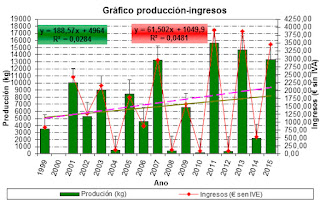In general, good farmers are looking for the perfection in their tasks and, mainly, in their fields. One of these common works is picking up stones in order to avoid problems when they use their farming machinery.
Fields where there are a lot of stones are usually cool (the reason is that they can keep humidity). Stones avoid erosion and they help to avoid compaction that is generated by some works done during the campaign. On the other hand, if there are too many stones, you can have problems using farming machinery. For example, the following ones are specific problems for some tasks:
- Sowing: when there are stones, the sowing task can be not very regular on whole field
- Applying phytosanitary treatments: stones can generate a shade between plants and phytosanitary liquid.
- Harvesting: The cutte bar of combine has to work at 5 cm from the ground in fields where there are sowed pulse vegetables. Therefore, a large stone can cause a cutte bar break of the combine.
Our great friend Oscar (from El Provencio - Cuenca) sent us a few pictures about his labor of picking up stones. As you can see, he uses the Kongskilde Stonebear machine that is specially designed for the removal and picking of stones from cultivated land in one operation. The Stonebear is designed to collect stones from approx. 28 mm (1”) to 30 cm (12”). It has a 4m working width, 20cm max. of working depth and tank capacity of 1800 litres.
In fields where you can find too many stones, the main problem is that the Stonebear machine has to discharge the hopper too often (about 20 times per hectare) since the limitation is the times you have to stop the machine to discharge the hopper.
In conclusion, this is an expensive and stressful work because Oscar has to paid 80 €/hour and Oscar has to transport all stones using his trailers (about 6 trailers per hectare) without breaks with the aim that the machine stops as little as possible.
Versión en español.






















